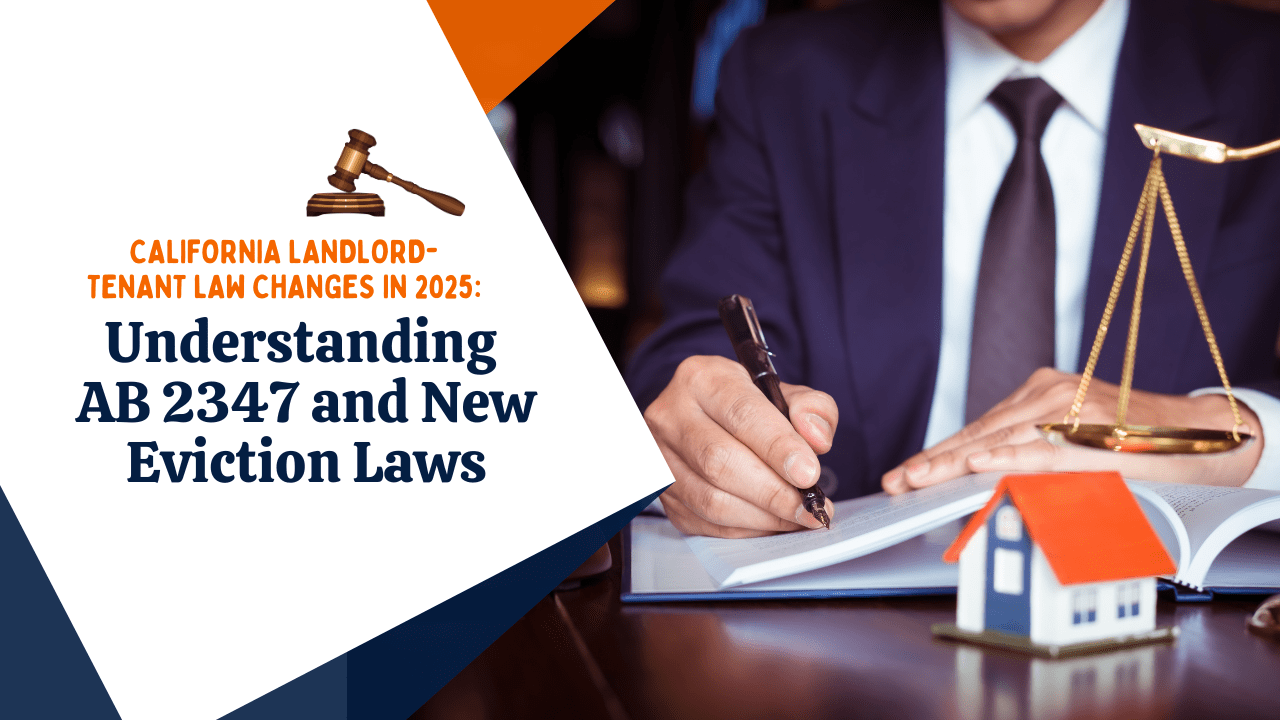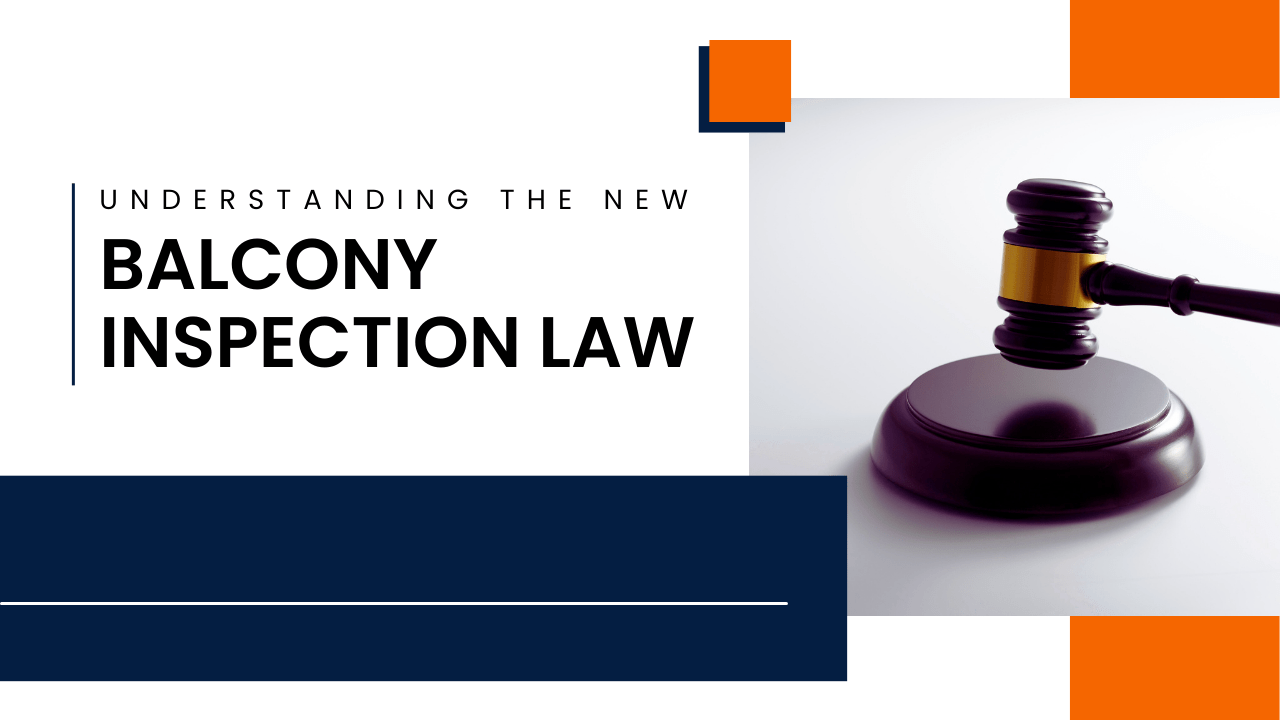Rental property owners in California who thought evictions were already time-consuming and difficult to pursue will need to adjust to a new law that provides tenants with some extra time to defend themselves and respond to an unlawful detainer that has been filed against them. Rental property owners in California who thought evictions were already time-consuming and difficult to pursue will need to adjust to a new law that provides tenants with some extra time to defend themselves and respond to an unlawful detainer that has been filed against them.
We’re talking about AB 2347, and the new eviction laws that California landlords must work around in order to remove a tenant from their rental property.
Changes to Eviction Laws in California
Assembly Bill 2347 is legislation that modifies certain aspects of California’s eviction laws. The law addresses a number of issues related to the eviction process, including notification requirements, rent control, and tenant defenses.
The most important part of this law, in our opinion as
experienced property managers in San Diego and the surrounding areas, is that beginning on January 1, 2025, tenants in eviction lawsuits will have more time to file a response in court after receiving the summons and complaint.
AB 2347 makes two important procedural revisions to unlawful detainer proceedings that will impact the length of those proceedings.
- Probably the most significant part of this law is that the tenants you are trying to remove from your property now have 10 court days (excluding weekends and judicial holidays) to file a response once the owner has served them with the summons and complaint. This revision to California Code of Civil Procedure Section 1167 doubles the current response deadline of 5 days.
- If a tenant defending themselves in an eviction lawsuit files a motion to strike in response to an unlawful detainer complaint, the hearing must take place between five and seven court days after that motion is filed, unless the court orders a later hearing date for “good cause.”
What does this mean?
First, it means that you’ll be waiting longer for a tenant’s response to your eviction filing. But it also means that you will not be required to file a written opposition to their motion to strike. Instead, you can oppose the motion orally at the eviction hearing. Following your noted opposition, the tenant will be able to reply to it.
You’ll still have the option to file written oppositions to motions to strike from a tenant, but you’ll have to file and serve it at least one day before the hearing is scheduled. The court can consider written oppositions filed later, but it’s not guaranteed.
Does This Mean California Evictions Will Take Longer to Resolve?
Potentially, yes.
Because tenants now have twice as much time to respond to an unlawful detainer complaint, we expect that most eviction lawsuits will take longer to resolve. Whether there’s a hearing, a trial, a default judgment, or even a settlement, the timeline for reaching the ultimate court decision now has five additional business days tacked on.
But the good news is that because proceedings could potentially be streamlined with the oral response to specific motions from the tenant, the entire process may move through the courts a bit more efficiently. There’s no longer a need to file written oppositions and replies.
Impacts on California Rental Property Owners
While the intent of AB 2347 is to provide additional protections for California tenants who are in danger of being evicted, it also impacts landlords and
rental property owners in a few significant ways.
Here’s how to plan and prepare as these changes become the new normal.
1. More Documentation and Record-Keeping
Landlords will need to be diligent about keeping thorough records related to
rent payment, lease violations, and tenant communications. It’s always been important to document every step of the process, and you’ll want to retain copies of all notices sent to tenants, proof of communication about
late rent or lease violations, and any documentation you can provide that demonstrates you attempted to resolve the issue before deciding to evict.
2. Potential Increased Costs for Eviction
The changes to notice periods and response times means that you may face an extra few days wherein you’re not receiving rent. This is potentially disruptive to your cash flow, and that can result in higher costs for landlords who need to re-rent their homes once a tenant is evicted.
3. Legal Mistakes are Easier to Make
Given the increased tenant protections and the complexity of California’s rental laws, landlords must exercise caution when managing rental properties. You’ll want to stay up-to-date on local ordinances that may further affect your rights as a property owner, as many cities have stricter rules regarding eviction and rent increases than state laws. It’s an excellent reason to
partner with a property manager if you’re not already doing so. Staying ahead of the latest laws and court interpretations of those laws can be time-consuming and frustrating. We spend a lot of time ensuring compliance to protect our owners.
Given the potential impact of this extended response period, you’ll want to focus on certain steps to minimize the delays and financial strain caused by the new timeline:
- Consider Alternative Solutions. Avoid eviction if you can. Offer residents the opportunity to enter into repayment agreements or help them apply for rental assistance programs before resorting to eviction.
- Start the Eviction Process Early. Time is of the essence, and that’s truer now than it was before. Given the extra days tenants have, it’s important that you start the eviction process as soon as you can, especially if your resident is already late paying the rent. The sooner you start the process, the sooner you can turn it over to a tenant who can pay.
- Get Professional Help. Consulting with an attorney and gathering legal advice is essential. Evictions are not easy to manage, and making even a minor mistake can set you back even further. Don’t risk it. Talk to a property manager and an attorney.















